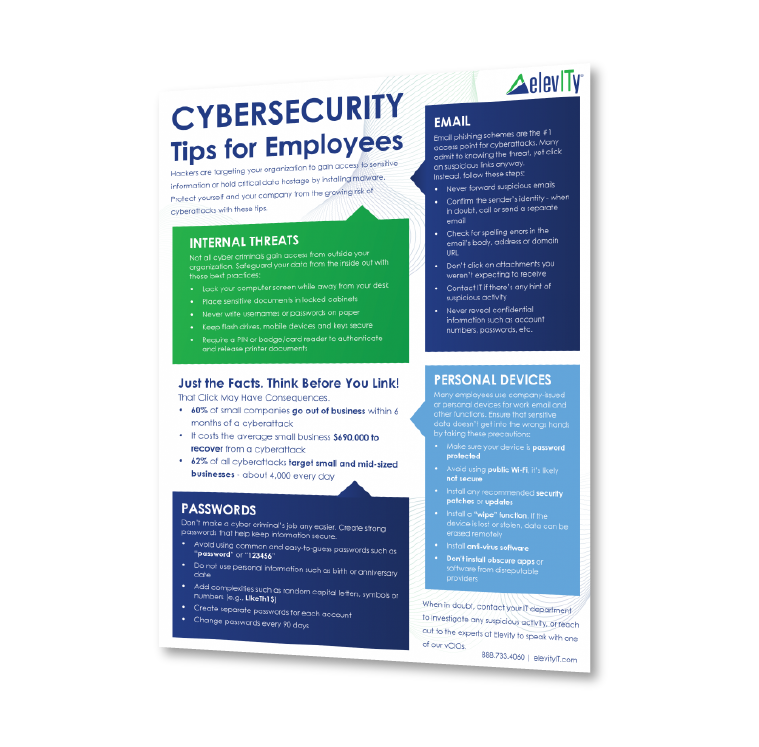Tips for Putting Your Network in Order
Whether it's winter, spring, summer or fall, there's never a wrong time to tidy up your tech. Here's a list of smart spring cleaning activities for IT professionals.
Get an Accurate Device Count
Knowing your hardware inventory and who’s using corporate devices helps you:
- Identify when you need to order more equipment
- Plan for hardware refreshes
- Know where assets are deployed and critical information is stored
Monitors, keyboards, PCs, laptops, printers, company smartphones, and other key hardware should be named and labeled for reference. Asset tracking software makes it easy to monitor what devices you have and who is using them. Elevity can help you determine what tools you should use to keep track of your hardware.
Create a Tech Refresh Cycle
Do you only replace IT equipment when it dies? You may think it saves your company money to use a workstation as long as possible before getting a new one. In reality, the maintenance needed to keep the machine functional and the employee productivity lost due to a slow machine loses you money.
You should plan to replace business computers every 3-4 years. Implementing a tech refresh plan:
- Allows you to budget for replacement costs instead of paying for upkeep of old equipment
- Improves productivity by avoiding downtime from slow devices
- Reduces unwanted emergency fixes on out-of-date machines
Remember that Windows 7 end-of-life was back in January 2020. Machines running Windows 7 are usually older and should be replaced with new Windows 10 computers.
E-cycle Your Old Tech
Planning an equipment update this spring? Consider recycling your old hardware. Because electronics contain environmentally hazardous materials like lead and mercury, you must dispose of them properly.
Ingram Micro’s E-Waste Recycling Program and Cisco’s Takeback and Recycle Program are just two options available. We can connect you with appropriate e-cyclers based on the equipment you need to discard.
Test Your Data Backups
Rising numbers of ransomware attacks mean it’s more crucial than ever to regularly backup your data to multiple locations.
“Nah, I’m good,” you may say. “All my company’s data is stored in the cloud.” Actually, no. You still need a complete, stand-alone backup of that data somewhere else.
Whatever backup solutions you use, run a variety of test file restores.
Review and Test Your Business Continuity and Disaster Recovery Plans
A good disaster recovery plan helps your vital business data survive a cyberattack, natural disaster, or other serious emergency. It should identify the critical systems your company depends on and outline the actions necessary to mitigate the effects of those systems temporarily failing.
Don’t just assume your disaster recovery plan will work perfectly when you actually need it. Run various disaster simulation exercises to work out any kinks. A test could be something as simple as simulating an outage of your primary internet connection to see if your secondary connection automatically takes over.
Also, be sure to re-evaluate your plan regularly and update it as needed.
The experts at Elevity are here to help you keep your network clean and in good working order all year long. So let’s get to it!








%20cropped.jpg)




